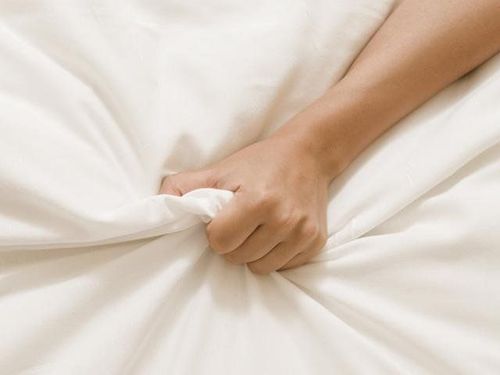This article has been reviewed by Specialist Doctor I Néang Chanh Ly, Obstetrician and Gynecologist, Department of Obstetrics and Gynecology at Vinmec Phu Quoc International General Hospital.
Masturbation in women refers to the act of stimulating the clitoris to experience sexual pleasure. This behavior is completely normal and can offer several benefits. However, excessive masturbation may lead to negative effects on both physical health and relationships.
1. What is masturbation?
Masturbation is the act of sexually stimulating one's genitals until reaching orgasm. It is a common behavior in both men and women and is a natural part of growing up for children of all genders.
This act is not inherently “good” or “bad,” although societal norms sometimes assign a negative value to it.
Sexual development is an essential aspect of normal childhood growth, akin to physical, emotional, language, and communication development.
2. Masturbation in women
The clitoris is a small, sensitive organ comprised of erectile tissue located in the female vulva. With thousands of nerve endings, it is incredibly sensitive. Masturbation stimulates the clitoris, leading to sexual pleasure. Engaging in this behavior allows women to better understand their bodies without feelings of shame or guilt. It can enhance a woman's sexual experience with a partner.
Masturbation can be a source of healing, fulfillment, and happiness, as it provides women the opportunity to explore and express their sexuality joyfully.

3. Is masturbation common?
Sexologists and researchers agree that masturbation is a completely normal and healthy sexual behavior. Because it is an intensely private act, many people are reluctant to discuss it, even with close friends, which contributes to its social stigma.
4. Is masturbation harmful to women?
From a health science perspective, masturbation is not harmful. While some individuals may have ethical objections to it, it remains a personal choice.
The benefits of masturbation for women include:
- Masturbation in women can help reduce the risk of cervical infections and urinary tract infections. The urge to masturbate can be particularly strong during UTIs because it may help relieve pain, lubricate the vagina, and flush out harmful bacteria from the cervix.
- Engaging in masturbation can reduce feelings of depression, as it increases levels of mood-enhancing hormones like dopamine and epinephrine in the body.
- Masturbation can significantly alleviate emotional stress.
- By understanding and loving oneself on both physical and emotional levels, women can improve their self-awareness and confidence.
- Masturbation can enhance sleep quality and help combat insomnia.
- Women who experience frequent orgasms and find satisfaction in masturbation or sexual activities tend to have a lower risk of heart disease and type 2 diabetes.
- Masturbation can enhance your relationship with your partner because you understand yourself better.
- For postmenopausal women, a narrowing vagina can make sex and pelvic exams painful, but masturbation, especially with water-based lubricants, increases blood flow to the sexual organs. This can help alleviate moisture problems and prevent vaginal narrowing.

5. How many times a week is it considered normal for a woman to masturbate?
The frequency of masturbation can vary significantly from woman to woman, depending on her overall health. Some women may masturbate two to three times a day, while others might do so five to seven times a week, or may not engage in masturbation at all.
Sexual desire is a natural part of life; however, moderation is key. Instead of increasing the frequency of masturbation, consider redirecting that energy towards activities such as sports, creative arts, or other hobbies. This approach helps ensure a balanced, healthy, and fulfilling life.
6. Can masturbation be a substitute for regular sex?
Masturbation is a pleasurable activity that differs from intercourse. It can enhance your experience with a partner by helping you understand your body better as a woman. However, if you find yourself solely relying on masturbation and neglecting physical intimacy with your partner, it might indicate underlying issues.
There are valid situations where masturbation can temporarily replace sexual activity, such as:
- If your partner has a lower sexual desire than you do.
- If your partner is ill.
- If your partner is not with you
By understanding female masturbation clearly, you can make informed choices that promote your overall health and well-being.
Please dial HOTLINE for more information or register for an appointment HERE. Download MyVinmec app to make appointments faster and to manage your bookings easily.













